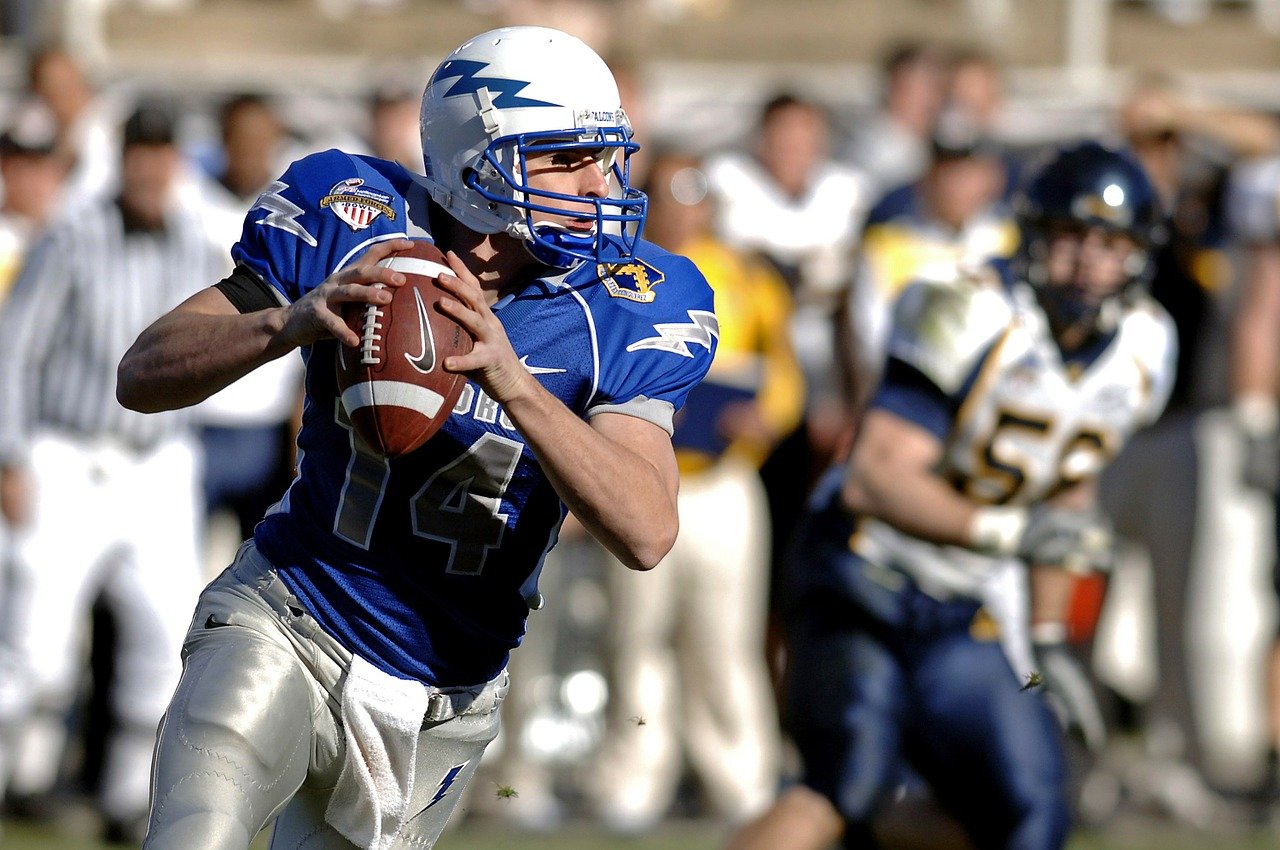Guy Stuff
An Insider’s Look At How Top Sports Agents Get It Done
Have you ever considered what is needed for being an athlete’s agent? An insider’s view of how top sports agents operate is provided in Winning the Game. You will discover the techniques used in successful contract negotiations and championship wins. From signing up with a team to representing, and from developing into a pro athlete. This blog post will provide you with some useful advice for anyone wishing to enter the industry, succeed, but also support others. Put your best game forward and let’s investigate how these experts have honed their art. Let’s prepare to triumph.
1) Stay in the Know:
Top sports agents need to stay abreast of the latest news and developments in the sports industry. They need to be aware of any potential changes in regulations, as well as new technological advances that can help their athletes perform better. Additionally, they must also keep an eye on what competing agents are doing and who the most sought-after players are.
To stay informed, top sports agents must read up on industry publications and take part in weekly sector specific meetings. These help them understand the current trends so that they can make better decisions when approaching potential clients or negotiating contracts with existing ones. They should also attend conferences related to sports management, marketing, finance and other topics that will help them become more successful.
Moreover, top sports agents should always be networking as well since relationships are key in today’s competitive landscape. Making connections with other agents, coaches and scouts can open up numerous opportunities for their client’s career. This helps agents provide guidance to their athletes while staying up-to-date on relevant events in the industry so they can get ahead of the competition.
Ultimately, successful sports agents know their success depends on their ability to stay informed when it comes to how business is conducted in their specialized field. To win big deals for their athletes, they must remain vigilant about who is trending and what strategies other agencies are implementing – all while maintaining a strong network of contacts within the industry at large.
2) Know Who To Talk To:
To secure the greatest bargains for their clients, agents must also know who to contact. Making the appropriate contacts is essential in this industry, even while being informed is key. Agents need to be able to spot possible chances and establish connections with influential figures in the industry, like coaches and scouts. The rules regulating professional sports leagues and any possible modifications that may have an impact on their clientele should also be known to them.
Sports agents that are most successful are talented and aware of how athlete performance affects contracts. They may advise their customers on things like when it’s best for them to sign or negotiate contracts or when particular teams may be giving better bargains than others by having a deep understanding of industry trends. Additionally, knowing which teams are willing to spend a lot of money on particular athletes can expand their client’s career opportunities, for instance a soccer goalie has certain skills securing the soccer goal post that could be more valuable than an outfield player that can’t do the same.
3) Mental Health & Stability:
You as an agent have the responsibility of ensuring their client’s health and stability while they compete in their respective sport. Agents must be aware of the physical, emotional and psychological demands that athletes endure on a daily basis, as well as the potential long-term effects of these stresses. It is important for agents to understand how to properly monitor their client’s progress, provide guidance when necessary and create an environment where athletes are able to thrive.
Mental health problems faced by athletes must be brought under so that they can offer the best possible help. This involves being willing to have difficult conversations, being aware of when it is necessary to refer an athlete to a specialist, and having access to helpful resources on common mental health conditions like anxiety or depression. Agents should also be knowledgeable with any performance-enhancing drugs (PEDs) or other substances that, if misused, may have an adverse effect on a client’s career trajectory.
Furthermore, top sports agents know that success requires more than just physical prowess – it requires a healthy balance between work and play. They should encourage their clients to take a break from training by engaging in positive activities such as going for walks, visiting family members or participating in recreational activities like biking or swimming. This helps athletes stay mentally sharp while providing them with outlets to de-stress before returning to the court or field again.
Successful sports agents understand the importance of maintaining their client’s mental health and stability so they can perform at their best both on and off the court. From creating healthy routines and referring them to specialists when necessary to monitoring performance enhancing drugs, agents play an integral role in helping athletes reach peak performance and maintain longevity in their careers.
4) Creating A Support System:
Successful sports agents know that their success is dependent on the resources and team they have behind them. A strong support system is essential to make sure that agents are able to focus their time and efforts in the right areas. A group of legal experts, financial counselors, marketing specialists, and public relations specialists will be part of this system. All of these people ought to be authorities in their fields and knowledgeable about both the sports industry and the agent’s specific clients.
For agents to be successful, having a list of contacts is also crucial. Coaches, scouts, other agents, and team owners are a few examples of these contacts. Agents that have connections in the field can learn about contract offers that might be advantageous for the career of their clients.
Building relationships with media outlets can also help an agent promote their athletes and generate interest in potential deals. Agents should seek out journalists who specialize in sports-related stories and ask them to cover any moves made on behalf of their clients. Having positive press coverage helps create name recognition in the industry, while also providing an additional boost when it comes to negotiations with teams or sponsorships opportunities.
Having a good system of accountability is important so that agents stay on top of all their responsibilities while still maintaining relationships with those they represent. This means setting clear expectations and timelines for completing tasks such as researching athletes or contacting potential sponsorships opportunities and making sure everyone involved has access to real-time updates about progress being made on behalf of clients’ careers.
Overall, creating a strong support system is key for successful sports agents as it allows them to take care of business efficiently while still providing maximum value for their athletes’ careers. With this in place, agents can maximize opportunities presented while protecting against mistakes that could cost them valuable deals down the line – putting them ahead of the competition.
5) Financial Back-Up:
Financial back-up is an essential part of any successful sports agent’s toolbox. From having enough funds to cover office and travel expenses, to supporting athletes financially during contract negotiations, having a financial cushion is key in order to remain competitive. It is important for agents to set aside funds in their business plan in order to cover any unexpected costs that may come up while representing their clients.
Agents should also be aware of the financial burden that can come with negotiating large-scale deals and long-term contracts. It is not uncommon for teams and players to renegotiate agreements several months after they have already been signed – a process which can be both costly and time consuming. Having ample funds allows agents to pay for legal assistance if necessary, as well as cover any discrepancies or additional costs associated with reworking an existing agreement.
Having access to sufficient capital also allows agents to invest money in their clients’ careers, such as using financial resources towards marketing efforts or leveraging potential sponsorship opportunities. By doing so, agents can help create more exposure for their athletes and secure better deals down the line.
Ultimately, financial backing is essential for top sports agents as it allows them to confidently pursue new opportunities on behalf of their clients without worrying about the potential consequences of failing to have sufficient funds at hand when needed. Smart investments coupled with a solid plan are essential components for success – something that all successful agents understand implicitly.
In conclusion, there are many strategies and tactics that sports agents can use to ensure their success. From properly researching potential athletes they represent, to building relationships with teams and sponsorships opportunities, having financial back-up to support their efforts and creating a system of accountability – these steps help set successful sports agents apart from those who do not make it in the industry. By implementing effective strategies like these, sports agents will be able to secure better deals for their clients while still protecting against mistakes that can cost them valuable opportunities down the line.


















Recent Comments